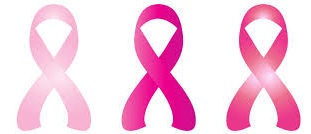Breast cancer and chemotherapy — precision treatment means using a scalpel instead of a hammer
Exciting findings in breast cancer treatment this week.
 First, as reported in The New England Journal of Medicine (NEJM), as cancer research advances, precision medicine can now help doctors understand what treatment is best for each individual woman.
First, as reported in The New England Journal of Medicine (NEJM), as cancer research advances, precision medicine can now help doctors understand what treatment is best for each individual woman.
A landmark Phase III National Institutes of Health (NIH) funded clinical trial of 10,773 patients has shown that genetic testing has improved chemotherapy treatment for breast cancer, making it possible to better target the tumor more effectively.
Breast cancer is the most common cancer in women in the U.S. and worldwide.
As reported by Dr. Jennifer Ashton on ABCNews.go.com, the testing is not appropriate for all types of breast cancer. However, many women may avoid chemotherapy when they have early-stage hormone receptor-positive cancer, HER2-negative and the cancer has not spread to the lymph nodes.
More than 50% of all breast cancers are hormone receptor-positive, HER2-negative. Lead author of the study, Dr. Joseph A. Sparano, Associate Director for Clinical Research at the Albert Einstein Cancer Center and Montefiore Health System of New York said, “Our study shows that chemotherapy may be avoided in about 70% of these women when its use is guided by the test, thus limiting chemotherapy to the 30% who we can predict will benefit from it.”
ABC writes that cancer care has been evolving from the “hammer” approach toward a more precision treatment. Chemotherapy has many harsh side effects and has given way to gene-targeting therapies, hormone blockers, and immune system treatments. Chemotherapy is typically used for shorter periods and at lower doses.
Dr. Ashton describes the test as examining a “fingerprint” of the tumor and using a score that predicts the risk of recurrence (after removing the tumor). A low score indicates that chemotherapy is not indicated. A high score indicates chemotherapy is the best course of action, based on risk.
Typically, after surgery to remove the tumor, women take a hormone-blocking drug. Many women also are urged to have chemo to help eliminate the chance that any remaining cancer cells will survive, but clinical evidence doesn’t support this recommendation.
The American Society of Clinical Oncology summarizes the key findings of the study:
According to the authors, the findings suggest that chemotherapy may be spared in:
- All women older than 50 years with hormone-receptor positive, HER2-negative, node-negative breast cancer and a Recurrence Score of 0 to 25 (about 85% of women with breast cancer in this age group)
- All women 50 years or younger with hormone-receptor positive, HER2-negative, node-negative breast cancer and a Recurrence Score of 0 to 15 (about 40% of women with breast cancer in this age group)
In the trial, about 17% of women had high-risk scores and were advised to have chemo. The 16% with low-risk scores were advised not to have chemo after surgery, based on earlier results from this study.
This score also tells the doctor what type of chemotherapy is most effective for those in which chemotherapy is indicated.
Personalized immunotherapy
In the second development, researchers report success in using a patient’s own immune cells to treat cancer. A 52-year-old woman was recently profiled on NPR and other major news outlets. First diagnosed and treated for breast cancer more than 10 years ago, the cancer returned, with a “grim diagnosis.” After enduring unsuccessful rounds of chemotherapy, she was accepted into a NIH-funded study where the DNA in a sample of each patient’s cancer is studied for mutations specific to their malignancies. Truly, personalized treatment.

Dr. Steven A. Rosenberg: American cancer researcher and surgeon, Chief of Surgery at the National Cancer Institute in Bethesda, Maryland.
As reported in NewScientist.com, “The treatment works by targeting genetic mutations that are acquired by cancer cells as they grow and multiply. These mutations are different for each patient, and some cause changes in the proteins that sit on the surface of cells. These surface proteins can be recognized by the immune system, prompting it to attack the cancer cells, but this immune reaction is usually not powerful enough to fight the cancer on its own.
Powering-up this immune response is a major goal for new cancer treatments. One approach is to take lymphocytes – a type of immune cell – from a patient, grow them in the lab to obtain huge numbers of them, and put them back into the patient. So far, immunotherapies that use this or other approaches have had some success against cancers with a lot of mutations – such as skin cancer, and lung cancers linked to smoking. But until now, such treatments haven’t worked in cancers with fewer mutations, such as breast cancer.”
NPR writes that the researchers, “…caution that the approach doesn’t work for everyone. In fact, it failed for two other breast cancer patients. Many more patients will have to be treated — and followed for much longer — to fully evaluate the treatment’s effectiveness, the scientists say.
Still, the treatment has helped seven of 45 patients with a variety of cancers, a response rate of about 15 percent, and included patients with advanced cases of colon cancer, liver cancer and cervical cancer.”
As reported by the NIH’s National Cancer Institute, “Immunotherapy is not yet as widely used as surgery, chemotherapy, and radiation therapy. However, immunotherapies have been approved to treat people with many types of cancer. To learn about immunotherapies that may be used to treat your cancer, see the PDQ® adult cancer treatment summaries and childhood cancer treatment summaries.”
Susan Burke March, a Cuenca expat, is a Registered and Licensed Dietitian, a Certified Diabetes Educator who specializes in smart solutions for weight loss and diabetes-related weight management. She is the author of Making Weight Control Second Nature: Living Thin Naturally—a fun and informative book intended to liberate serial dieters and make healthy living and weight control both possible and instinctual over the long term. Do you have a food, nutrition or health question? Write to her – SusanTheDietitian@gmail.com
Sources
ABCNews.go.com. Many breast cancer patients can skip chemo, big study finds.
American Society of Clinical Oncology. Most women with early stage breast cancer can forgo chemotherapy when guided by a diagnosis test.
National Cancer Institute. Immunotherapy to treat cancer.
National Public Radio. Therapy made from patient’s immune system shows promise for advanced breast cancer.
NewScientist.com. Woman survives metastatic breast cancer thanks to new treatment.
The New England Journal of Medicine. Adjuvant chemotherapy guided by a 21-gene expression assay in breast cancer.


















